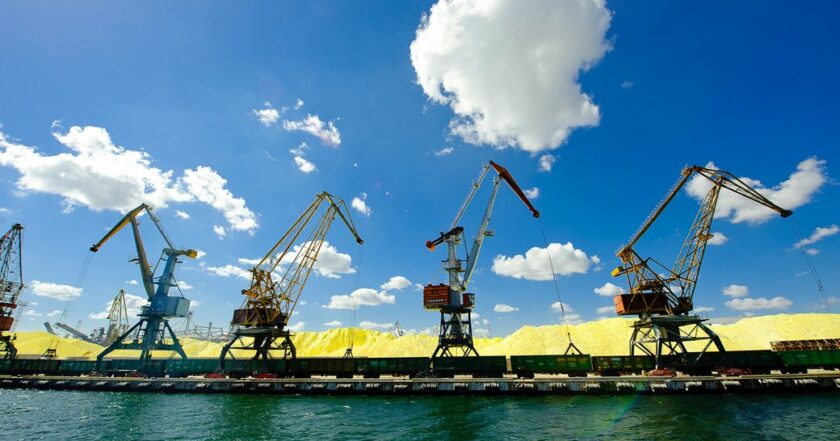Black Sea Corridor boosts Ukrainian exports by 35% in first half of 2024, returning to pre-war levels

Порт "Чорноморськ". Chornomorsk port. Photo: SE "Sea Trade Port "Chornomorsk"
During the first half of 2024, Ukrainian exporters experienced considerable growth in their sales, increasing them by 35%. This was made possible by opening the Black Sea maritime corridor, which significantly improved the conditions for Ukrainian exports.
Prime Minister Denys Shmyhal announced this during a government meeting.
- Restoration of pre-war export figures
The Prime Minister noted that Ukrainian exports have returned to pre-war levels, an important achievement for the country's economy.
"We reached pre-war export figures," he emphasized.
Shmyhal noted that since the beginning of the invasion, Russia had been trying to block Ukrainian ports on the Black Sea for a long time, that:
- significantly pressured the economy of Ukraine,
- posed threats to global food security.
"In this way, the enemy put pressure on Ukraine's economy, and at the same time put pressure on our allies, creating threats to world food security," he added.
- The importance of opening a sea corridor
One of Ukraine's significant achievements last year was the establishment of the Ukrainian Maritime Corridor. This has dramatically enhanced the conditions for exporting Ukrainian products and provided a new boost to the economy.
The Prime Minister noted that over 2,300 ships entered Ukraine's Black Sea ports during the year the maritime corridor was in operation.
"More than 2,300 ships entered the Black Sea ports of Ukraine this year. Cargo turnover amounted to more than 64 million tons. Almost 44 million tons of grain were exported from Ukraine. All this positively impacted various sectors of our economy and the economy in general," Shmyhal said.
The head of the government emphasized the need to continue work on the support and development of the maritime corridor to ensure the stability and growth of Ukrainian exports.
He also emphasized the importance of further work with international partners to ensure the safety and efficiency of maritime transport.
The growth of exports by 35% in the first half of 2024 is a significant achievement for Ukraine, which indicates the recovery of economic activity and the country's ability to adapt to new conditions and challenges.
For reference:
In August 2023, Ukraine announced a "humanitarian corridor" to free ships bound for African and Asian markets and to bypass Russia's de facto blockade after Moscow abandoned an agreement that guaranteed its exports during the war.
The Navy of Ukraine's armed forces announced the opening of a temporary corridor that could be used by all civilian vessels, particularly those in the ports of Odesa.
Furthermore, the Ukrainian government has established a new system for insuring ships against war-related dangers. This will significantly lower insurance costs for shipping companies transporting goods to or from Ukraine by sea.
According to Ukrainian Navy commander Neizhpapa, due to recent attacks by naval drones, Russian warships are no longer entering an area of approximately 25,000 square kilometers in the northwestern part of the Black Sea.
He mentioned that Ukraine wants to broaden its shipping route to include the Mykolaiv and Kherson ports in addition to the current three ports in Odesa, but this is not feasible. He also mentioned Russia's control over the Kinburn Spit, which lies along this pathway.
According to him, in some areas, civilian vessels are accompanied by patrol boats that help protect mines, and air defense equipment provides cover for both ports and corridors.
Ukraine's actions in the Black Sea have allowed it to create and secure its own shipping corridor without Russian approval after Moscow pulled out of a UN-brokered military food export deal last year.






















































